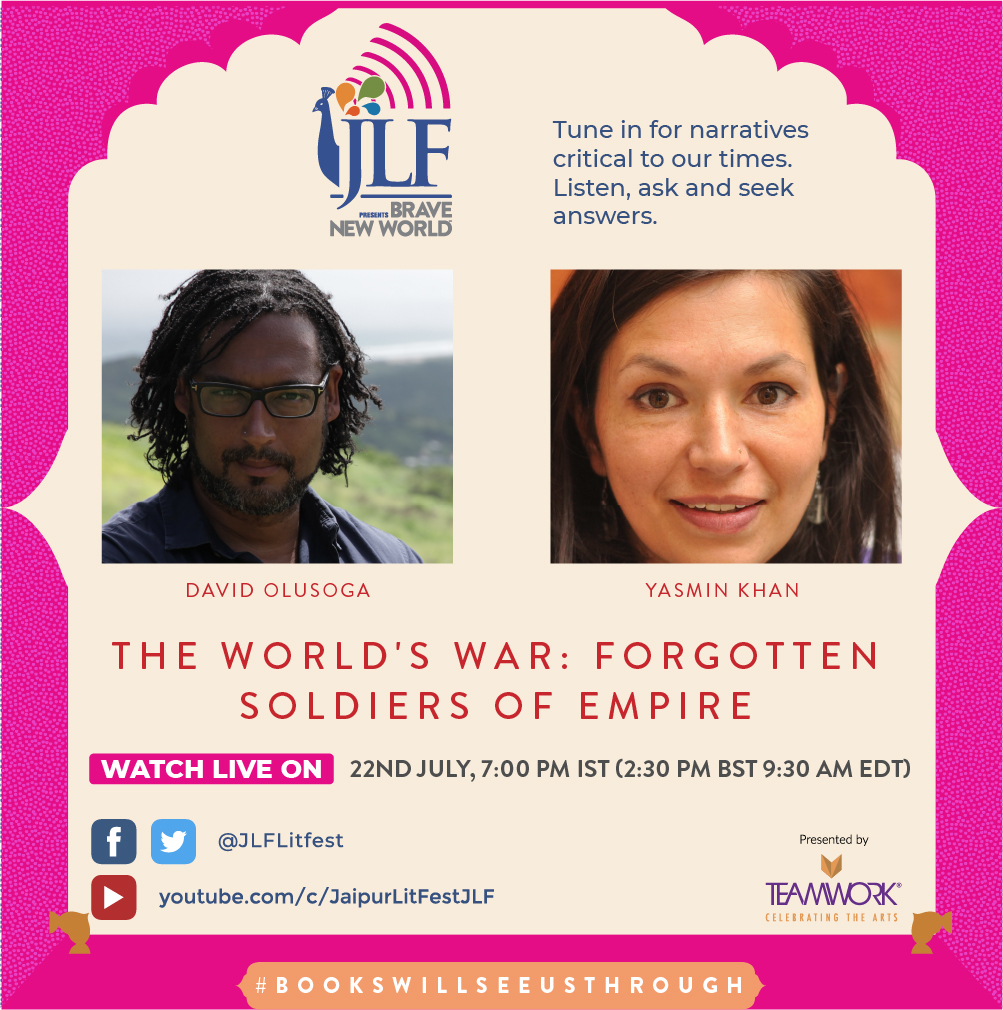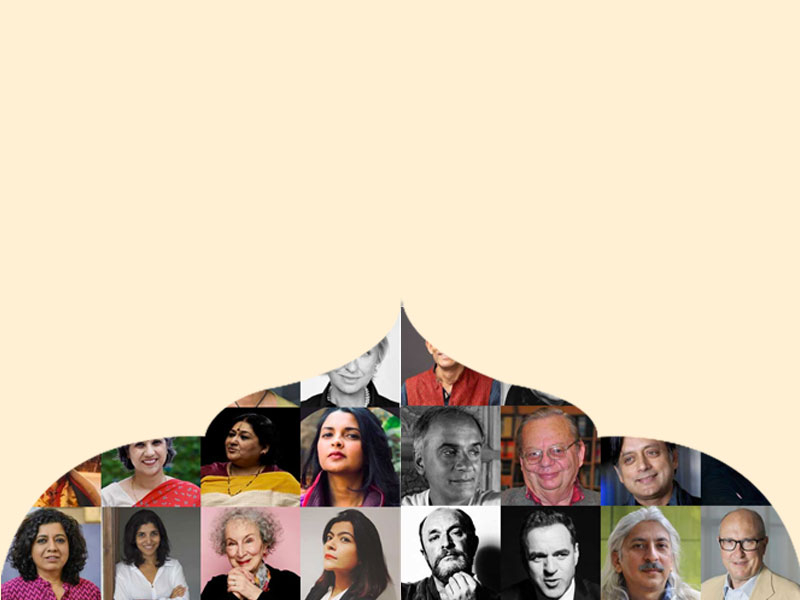Tune in for narratives critical to our times. Listen, ask and seek answers.
Watch Now
The Forgotten Soldiers of Empire - A Re-evaluation of British History
In the recent resurgence of the Black Lives Matter movement in Britain was heard a resounding call to pull down monuments to the leading figures of the British Empire. Lionised for decades as torchbearers of imperial success, the oppressive, discriminatory and rapacious nature of their contribution was long-ignored in favour of a simplistic narrative. But what led to this call for a reappraisal of British history in 2020, and why this vociferous and urgent demand to take down the statues now? Last night on JLF Brave New World, BBC broadcaster and historian David Olusoga explored the factors which may have precipitated this sudden delusion with the heroic myth of the Empire in conversation with Professor of History at Oxford, Yasmin Khan.
“Most of these movements have existed for a while. The only difference I can see is the pandemic- it kept older people off the streets and effectively handed over the floor to the young,†explained Olusoga. As a broadcaster, he said, he was often approached by young people who felt that their familial connection to Britain was not represented accurately in the histories taught in their schools. He pointed out the “strange double think†that was so pervasive in Britain- a country that liked “to boast about the size of its empire†- but wanted to pretend that four centuries of imperial rule had had no negative impact.
Hundreds of thousands of non-British soldiers were employed to fight Britain’s battle during the First and Second World Wars, but the greater injustice perhaps lay in the lack of acknowledgement of their efforts. Yasmin Khan expressed that while there was a growing recognition of the wronged soldiers from India and Africa, it was often celebratory. This was because it manifested itself as a harmful attempt to “diversify military history†without talking about the coercion and the discrimination. “How do you nudge forward a wider appraisal?†she asked David Olusoga.
The “greatest British victory†at the end of the Second World War, said Olusoga, was the creation of the Ministry of Information. And because they created a myth “so potentâ€, he said, that even 70 years later, it is difficult for the British to wean themselves off it. “We struggle so desperately to have a more nuanced understanding of the Second World War because it’s such a compelling story.†To illustrate the point, he quoted an example of his own team coming from filming at the western front on a ferry, when the sea opened up to a charismatic view of the white cliffs of Dover. The members on the expedition admitted to having had an involuntary emotion about the white cliffs, even though between them they had a body of books that was complicating a history and was rejecting a simplistic vision of the World War. “And yet, the image of the cliffs exerted an atavistic emotional pullâ€, said Olusoga, even for people who were working to explore and expose the wrongdoings of Britain in history.
But many have also taken the view that dismantling of these statues is a destructive act, and how did David Olusoga respond to that? It was important, he reminded the audience, for Britain to reject the idea that “to challenge this memorialisation from the past is somehow anti-historicalâ€. Rewriting or revising history, he said, was a completely normal, healthy process. Besides, historical tellings of a subject can be many and hagiographical depictions often seek to erase others in favour of a singular account. Statues on a pedestal in a city, he said, were a statement of affirmation and memorialisation, but no historical figure should be immune to criticism today. He wondered how it would be to place information about Churchill's racism on a historical plaque next to his monument. "I don’t think that any city should uncritically celebrate people who did terrible things. Monuments aren’t capable of the nuance of history,†he said, closing this fascinating and hugely relevant session.





Leave a comment